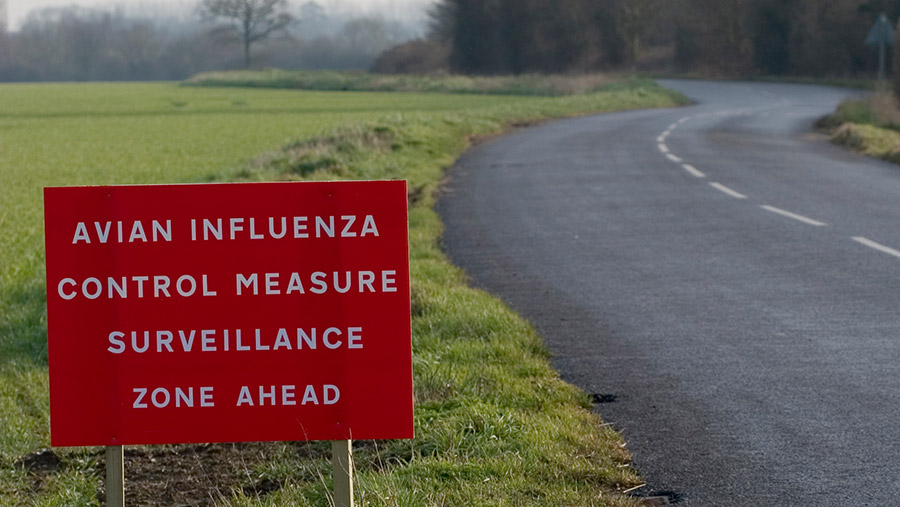Tough avian flu rules imposed in East Anglia
 © Paul Hebditch/Adobe Stock
© Paul Hebditch/Adobe Stock Poultry flocks in East Anglia have been placed in an avian influenza prevention zone (AIPZ) as government vets battle to halt the spread of the disease.
Outbreaks of avian flu are continuing to mount, with six cases registered across the southern half of the UK last week. Parts of the West Country were placed in an AIPZ at the end of August.
Flocks in the South West will now be joined under AIPZ restrictions in Norfolk, Suffolk and parts of Essex.
See also: Dairy farmer killed by bull during TB testing on Welsh farm
Defra deputy chief vet Richard Irvine explained the move was necessary because of the numbers of cases in both poultry and wild birds across the three counties.
The disease has been detected in kept birds at 10 premises in the affected regions since the beginning of September, as well as several reports in wild birds, Mr Irvine said.
The restrictions mean that from midday on 27 September, it will be a legal requirement for all bird keepers in these areas to follow strict biosecurity measures to protect their flocks.
The regulations affect all bird keepers, including hobby and backyard poultry keepers, and anyone who keeps chickens, ducks and geese as pets.
AIPZ requirements
- Cleanse and disinfect clothing, footwear, equipment and vehicles before and after contact with poultry and captive birds
- Where practical, use disposable protective clothing
- Reduce the movement of people, vehicles or equipment to minimise contamination from manure, slurry and other products
- Use effective vermin control
- Keep records of mortality, movement of poultry and poultry products, and any changes in production
- Thoroughly cleanse and disinfect housing on a continuous basis
- Keep fresh disinfectant at the right concentration at all farm and poultry housing entry and exit points
- Minimise direct and indirect contact between poultry and captive birds and wild birds
- Ensure all feed and water is not accessible to wild birds
- Prevent access by poultry to ponds and watercourses and ensure that birds are kept in fenced or enclosed areas
Mr Irvine added: “Whether you keep just a few birds or thousands, you are now legally required to introduce these stricter biosecurity standards on your farm or smallholding.
“It is in your interests to do so to protect your birds from this highly infectious and devastating disease.”
While the regionalised AIPZ does not include a requirement to house birds, a housing order is being kept under constant review, Defra said.
The AIPZ will remain in place until further notice.
Report dead birds
Dead wild birds must be reported to Defra’s national dedicated helpline on 03459 33 55 77
Flock keepers should report suspicion of disease in their birds to the Animal and Plant Health Agency on 03000 200 301
